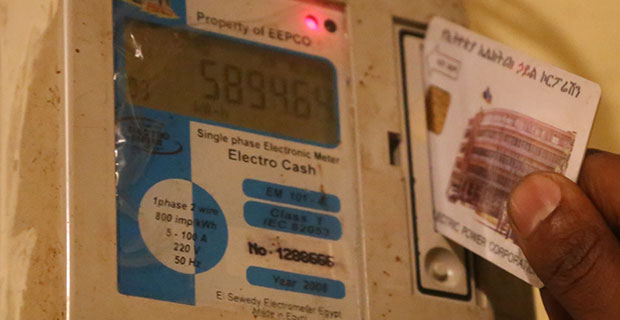
News Analysis | May 04,2025
Jan 5 , 2020
By DIBORA SAMSON ( FORTUNE STAFF WRITER
)
If the parliament legislates the bill, the Federal First Instance Court will be able to review cases concerning up to 10 million Br, 20 times higher than the current cutoff of half a million Birr.
Drafted by the Law & Justice Advisory Council, which was formed by Prime Minister Abiy Ahmed (PhD) to reform the justice system, the draft federal courts proclamation extends the jurisdiction of the court. The bill was tabled to the parliament on December 19, 2019.
The high inflation in the economy and the aim of making the High Court an appellate one, are the major reasons for the amendment, according to Tesfaye Neway, spokesperson of the Federal Courts and vice president of First Instance Court.
The bill also proposes increasing the number of presiding judges on trials at the First Instance Court. Currently, only one judge is presiding over cases there.
Additionally, it calls for the High Court gaining the jurisdiction to review cases based on the type of cases rather than the amount of money involved. The High Court will review international cases, cases that concern nationality issues, and cases that had rulings in foreign countries, according to the bill.
To make the judicial system free, neutral, efficient and predictable, it was important to work on multi-disciplinary reforms by identifying gaps and corrections in the system, according to Solomon Ejigu, communications director at the Federal Supreme Court.
The three committees under a Judicial Reform Advisory Council, which is composed of 15 law professionals, has been conducting research and proposed to amend the federal judicial administration and courts proclamations. The three committees have also been working on administrative issues, a legal framework and services.
The first team works on the independence, neutrality and accountability of the judicial system by conducting studies and modifying the previous federal judicial administration proclamation, while the second is engaged in the federal courts' proclamation. The third committee is involved in subjects that affect judicial proceedings and summarises them by gathering ideas for input to the draft proposals.
Legislated in 1996, the Federal Courts' Proclamation passed through four amendments that came into play in 1998, 2001, 2003 and the last one 15 years ago.
In the last fiscal year, the First Instance Court has reviewed 210,337 files and closed 161,759 of them. The High Court closed 26,233 cases out of the 26,500 files on its docket. The Federal Supreme Court presided over 20,104 files until late July and managed to close 16,238 of them.
The bill also clarified the role of the Cassation Bench, which was confused with the jurisdiction of lower courts, according to Tesfaye.
The Cassation Bench's mandate was basically to review cases that have an error of law in rulings passed by lower courts, however, in practice the Bench was presiding over cases that should have been reviewed by lower courts, according to Tesfaye.
"The bill defined basic errors of law and listed the mandates of the Bench," he told Fortune.
Liku Damtew (PhD), a legal practitioner, believes that any civil litigation should start at the First Instance Courts, saying that it will increase the Courts' contribution to the justice system.
He also believes the government should work on the capacity building of these courts.
“Working on assigning qualified and able judges to the courts should also get attention,” said Liku.
PUBLISHED ON
Jan 05,2020 [ VOL
20 , NO
1028]

News Analysis | May 04,2025

Radar | Oct 10,2020

Sunday with Eden | Jun 22,2024

Radar | Nov 07,2020

Fortune News | Apr 27,2025

Radar | Aug 21,2023

Radar | Jun 29,2019

Exclusive Interviews | Nov 23,2019

Fortune News | Feb 20,2021

Fortune News | Jul 08,2019

Dec 22 , 2024 . By TIZITA SHEWAFERAW
Charged with transforming colossal state-owned enterprises into modern and competitiv...

Aug 18 , 2024 . By AKSAH ITALO
Although predictable Yonas Zerihun's job in the ride-hailing service is not immune to...

Jul 28 , 2024 . By TIZITA SHEWAFERAW
Unhabitual, perhaps too many, Samuel Gebreyohannes, 38, used to occasionally enjoy a couple of beers at breakfast. However, he recently swit...

Jul 13 , 2024 . By AKSAH ITALO
Investors who rely on tractors, trucks, and field vehicles for commuting, transporting commodities, and f...

Oct 18 , 2025
The political establishment, notably the ruling party and its top brass, has become p...

Oct 11 , 2025
Ladislas Farago, a roving Associated Press (AP) correspondent, arrived in Ethiopia in...

Oct 4 , 2025
Eyob Tekalegn (PhD) had been in the Governor's chair for only weeks when, on Septembe...

Sep 27 , 2025
Four years into an experiment with “shock therapy” in education, the national moo...